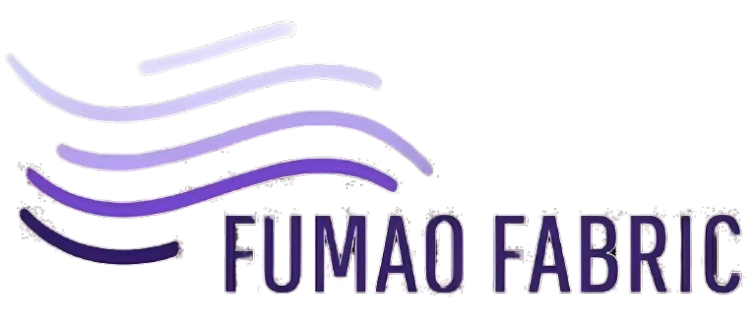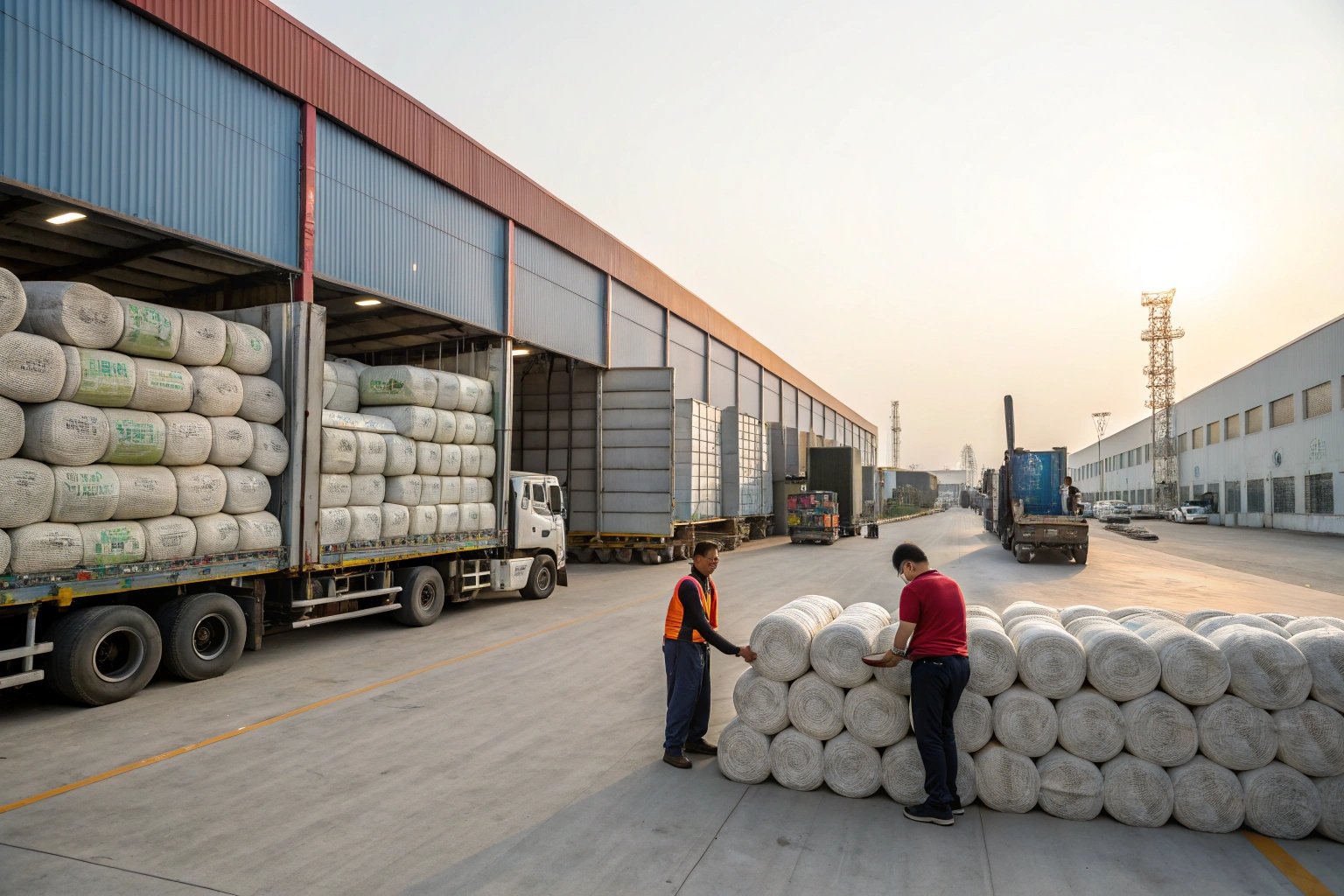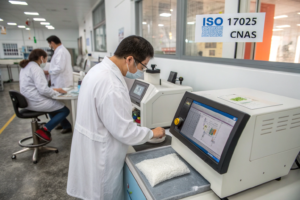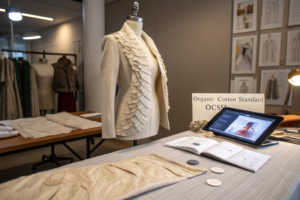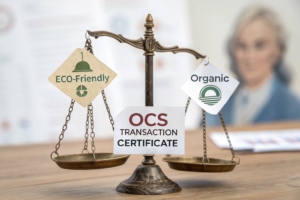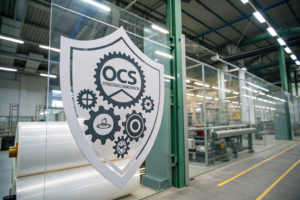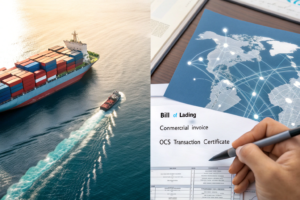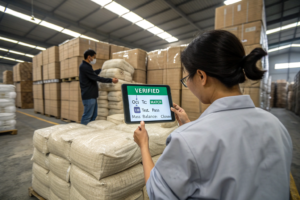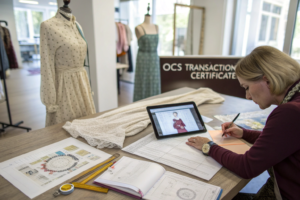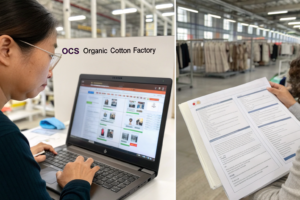Many overseas fabric buyers are still dealing with fragmented shipping processes—managing third-party logistics, tracking uncertain sailing schedules, and enduring customs delays. These pain points drain time and reduce trust. Especially when bulk orders are urgent, a disconnected supply chain can sabotage production planning and launch schedules.
Partnering with fabric mills that provide doorstep shipping can dramatically simplify sourcing. By consolidating fabric production and delivery under one accountable supplier, buyers eliminate middle steps, cut transit risk, and gain transparency from start to finish.
At Fumao Fabric, we've heard too many stories from clients burned by shipping confusion. That’s why we offer a seamless "mill-to-door" solution. Whether you're sourcing for a fashion label in LA or a factory in Vietnam, our integrated shipping service—powered by Keqiao’s multimodal logistics—keeps your deliveries on schedule.
What Are the Benefits of Doorstep Fabric Delivery?
The process of importing fabrics traditionally includes dealing with multiple service providers—freight forwarders, customs brokers, and inland transporters. Each layer brings complexity and added cost. It’s no surprise buyers are seeking mills that can take care of everything, all the way to their door.
Doorstep fabric delivery offers time savings, cost transparency, and peace of mind by removing third-party shipping hassles. It transforms procurement into a streamlined, single-invoice experience.
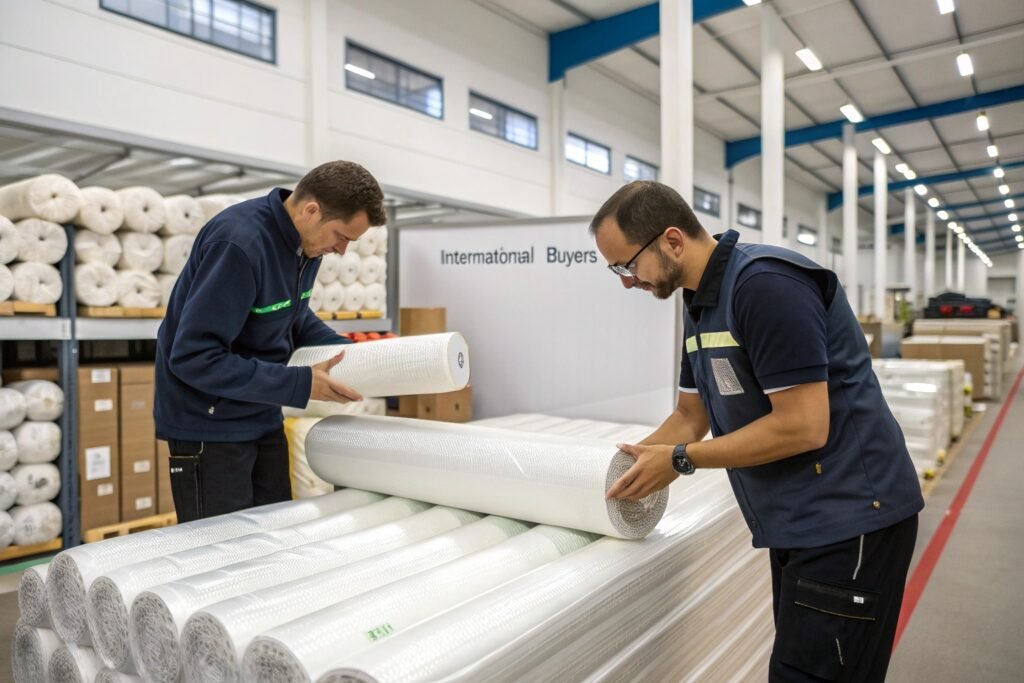
How Does Doorstep Shipping Reduce Lead Time?
Many of our clients told us that unpredictable handovers between mills and logistics agents led to delays. By owning the delivery pipeline, we eliminate these friction points. Our shipping routes—from Keqiao to Europe or North America—are optimized through bonded logistics centers, ensuring faster customs processing.
We partner with Cainiao and use Zhejiang’s Silk Road logistics corridor to ensure reliable delivery windows even during peak seasons. With real-time tracking and pre-cleared documentation, many of our U.S. clients now receive bulk orders within 10–15 days from sample confirmation.
Can Doorstep Service Lower Hidden Freight Costs?
Yes, by integrating shipping into the production cycle, we minimize partial loads, port handling fees, and delays that result in demurrage or storage charges. Instead of scattered payments across different vendors, our clients get one transparent invoice—covering everything from weaving to warehouse.
Buyers also benefit from our DDP shipping model, which includes duties, taxes, and inland delivery, making landed costs predictable for budget planning. Several of our Amazon clients say this visibility helps them price more confidently for their online stores.
How Does Doorstep Delivery Improve Supply Chain Control?
As a manufacturer, delays and missed delivery windows hurt not just margins but reputation. When a supplier also controls logistics, accountability becomes centralized. Problems are solved faster, and buyers don’t get stuck between blaming the mill and the shipper.
With doorstep delivery, fabric mills take full responsibility for transportation. This helps clients respond faster to issues and ensures better coordination during seasonal rush periods.
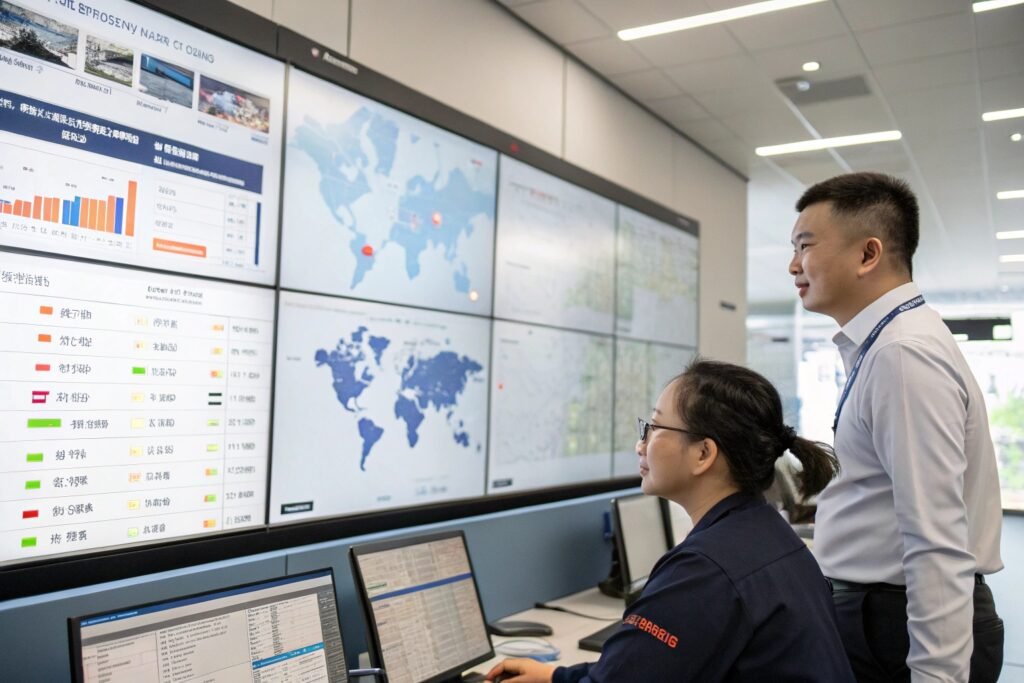
What Role Does Real-Time Tracking Play?
Our clients often express frustration over blind spots during shipping. That’s why we provide live QR code tracking through our integrated logistics system. Buyers can check their order’s location, customs clearance status, and expected arrival time.
We use platforms like Shippo to sync tracking into your internal system or e-commerce backend. For clients managing multiple collections at once, this level of visibility allows real-time decision-making—especially useful during fashion week deadlines.
Does It Help in Managing Inventory Risks?
Absolutely. We offer warehousing options in Europe and Southeast Asia to help buyers split shipments or delay delivery until their local demand spikes. For example, a London-based designer we support receives pre-packed lots with flexible release options, reducing the need for in-house storage and lowering holding costs.
These Just-in-Time (JIT) shipping options work well with our automated production scheduling tools like FastReactPlan, which many of our B2B clients use to align their forecasting and capacity planning.
Is Doorstep Delivery Cost-Efficient for Small and Mid Orders?
One concern new clients have is whether small orders qualify for fabric delivery. Many think such value-added logistics are only offered to big buyers or large factories. That’s no longer true in today’s competitive textile market.
Doorstep delivery is now accessible even for small batch or sample orders, thanks to shared container services, smart route optimization, and mill-direct consolidation.
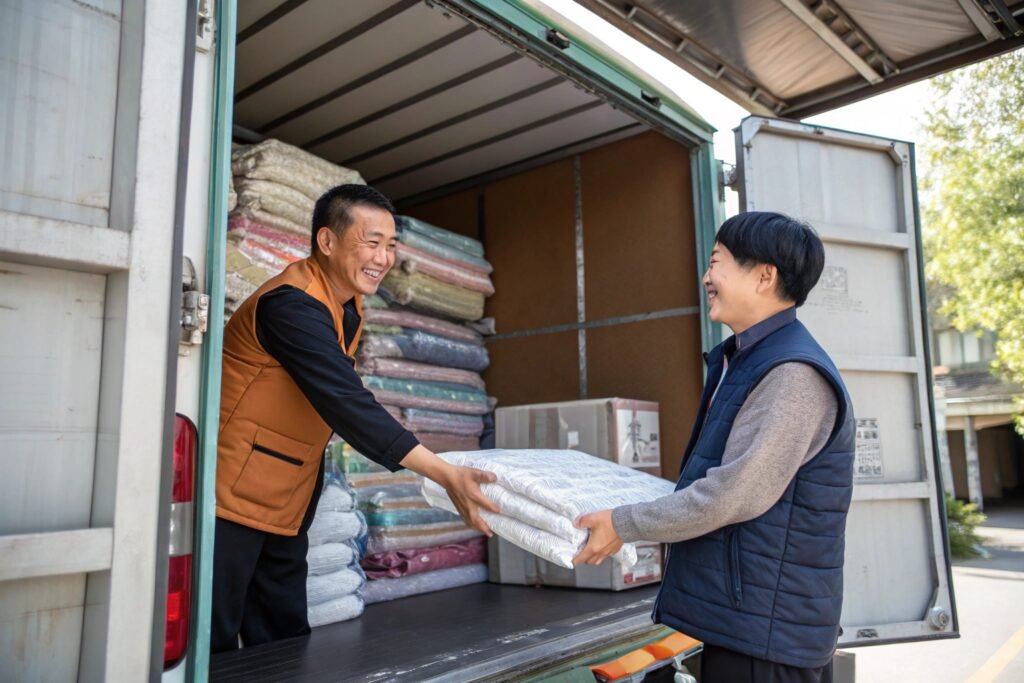
Can Low-MOQ Buyers Use This Service?
Yes. We regularly deliver under 500 meters of fabric to clients running boutique DTC brands or launching small drops. Thanks to our partnerships with third-party consolidators like SF Express, we combine several small orders into one customs-friendly shipment.
This ensures low per-unit freight costs and avoids delays due to "minimum cargo volume" constraints that usually apply to traditional LCL shipping.
What About Sampling and Express Needs?
For urgent sample development, we use express air freight (DHL/FedEx) with customs-precleared packages. Our in-house QC team ensures sample compliance, so there are no clearance hiccups. Clients in the U.S. often receive swatches or lab dips within 3–5 working days.
In fact, one of our startup clients in Brooklyn recently launched a successful Kickstarter campaign using our rapid sample-to-door cycle. Their fashion-forward jersey fabric prototypes arrived in time to film promotional content without delays.
How to Evaluate a Fabric Mill’s Doorstep Shipping Capability?
Not all mills that claim to offer "shipping support" have the infrastructure to deliver on that promise. As a buyer, you need to assess the supplier’s actual freight partnerships, documentation accuracy, and history with international delivery.
A true doorstep-capable mill will provide full DDP service, customs-ready paperwork, and real-time tracking while supporting both bulk and small orders.
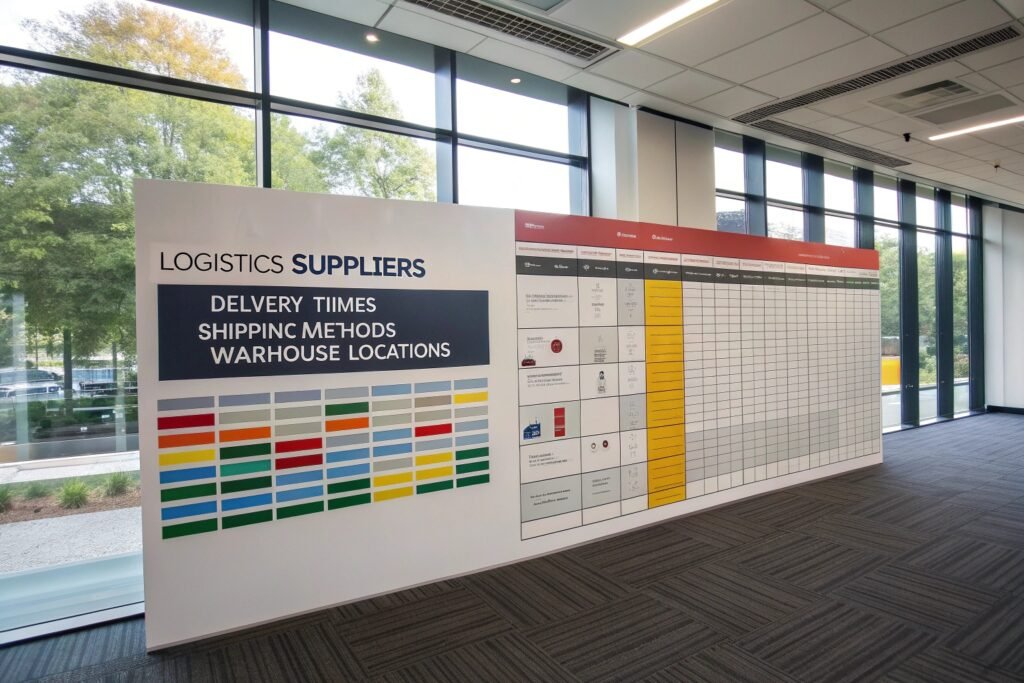
What Questions Should Buyers Ask Suppliers?
Start by asking which logistics partners they use—are they tied with Sinotrans or Cainiao? Can they show real client references from your region who’ve received delivery? Do they offer tracking systems with QR-code inventory integration?
Confirm if the mill handles Incoterms like DAP or DDP, and whether they provide full export declarations and HS code support. This helps ensure compliance and avoids accidental tariff issues.
How Can You Test Their System Before Bulk Orders?
We recommend starting with a sample order under doorstep delivery to observe how the mill manages communication, tracking, and customs. It’s often a clear indicator of how bulk shipments will be handled. Reliable mills will let you test shipping through their system with clear cost breakdowns.
At Fumao Fabric, we encourage trial orders so buyers can test not just our textile quality, but also our logistics promise. It builds trust—and sets the tone for long-term collaboration.
Conclusion
In today’s fabric sourcing world, speed and control matter just as much as price and quality. Partnering with a supplier that handles both production and doorstep shipping ensures consistency, transparency, and peace of mind. You save time, reduce risk, and gain an edge in product launch speed. That’s why we’ve invested in building a full-chain logistics infrastructure at Fumao—because fabrics shouldn’t just be high-quality, they should also arrive exactly when and where you need them.
